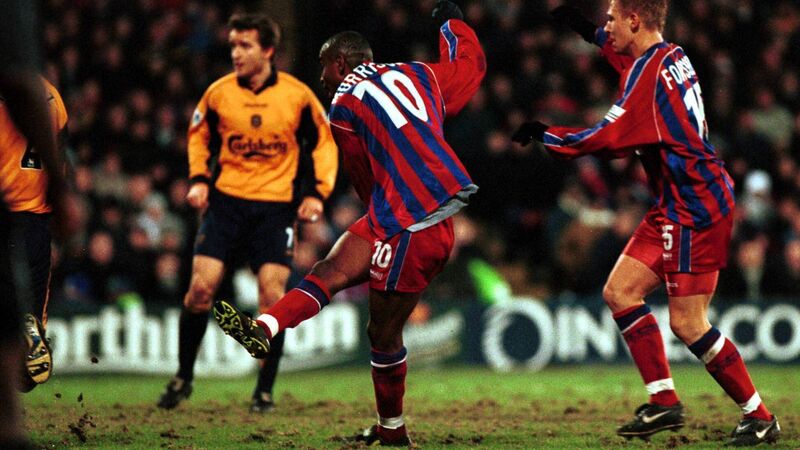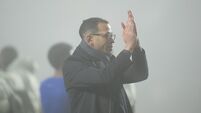Larry Ryan: Should the media really be trading in words not given freely?

BACK IN THE DAY: Clinton Morrison scores for Crystal Palace in their 2-1 League Cup semi-final first leg win over Liverpool in 2001. However, remarks he made in the aftermath of the match have been remembered for far longer than his goal.
It's remarkable, the durability of certain throwaway words. The rich full life they can live.
After Crystal Palace’s League Cup semi-final first leg win over Liverpool in 2001, former Ireland striker Clinton Morrison, who’d scored and wasn’t known for self-effacement, got drawn into some chat about the opportunities Liverpool had spurned.









